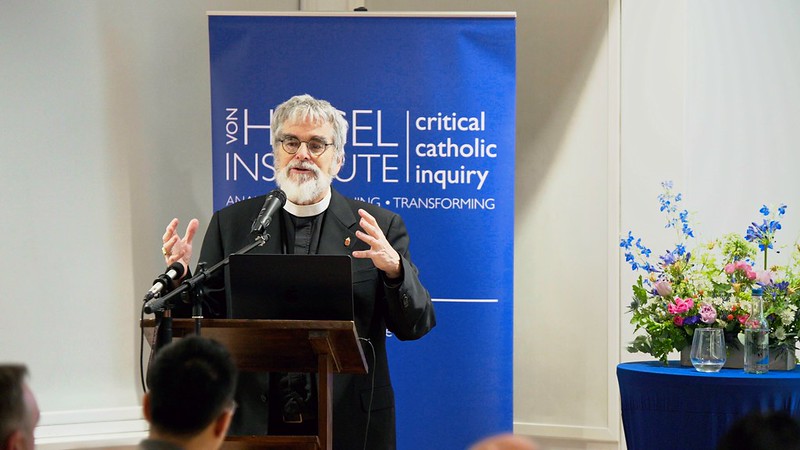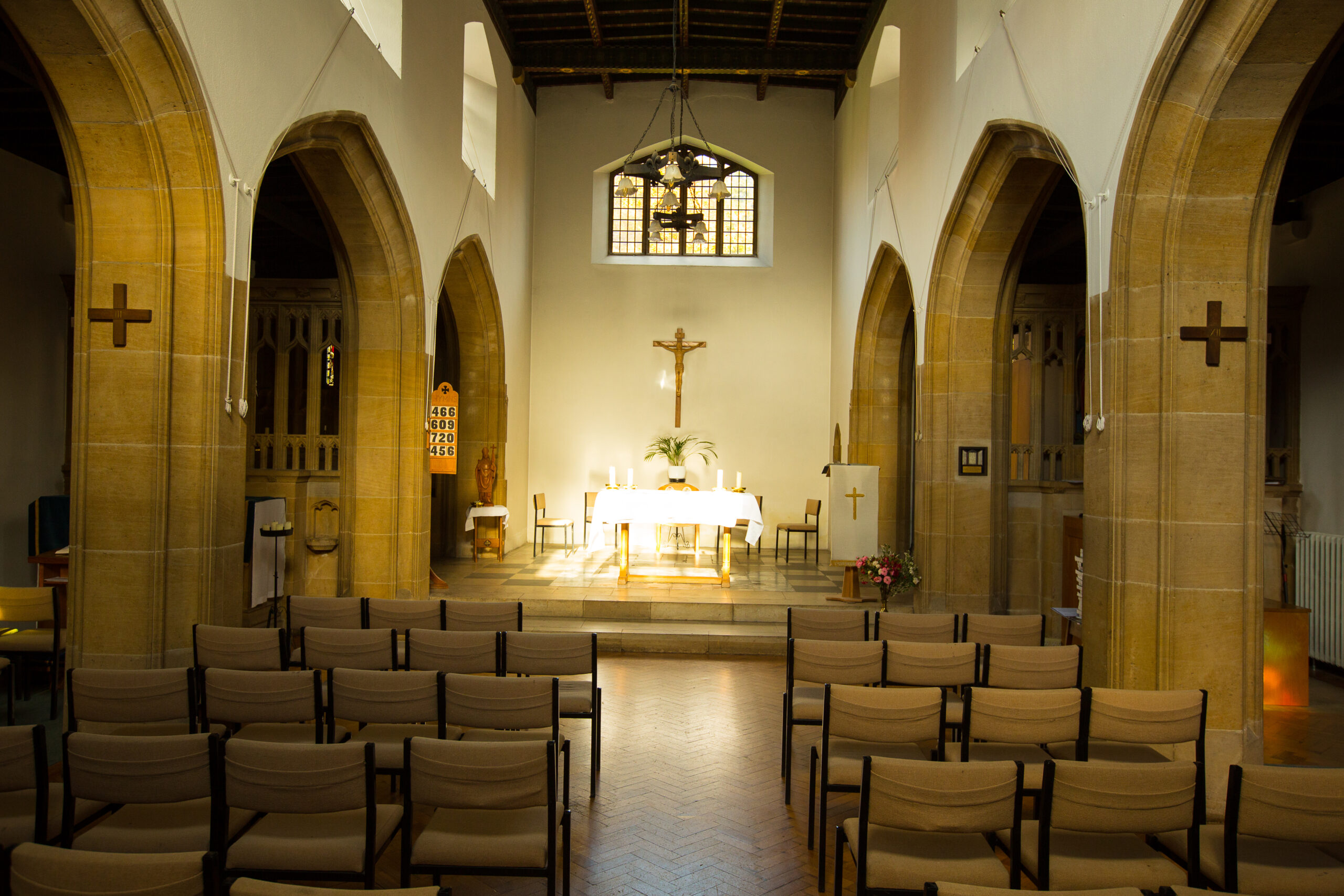Studying Theology, Religion, and Philosophy of Religion at Cambridge
- UCAS Code: V600
- How many are admitted to Cambridge every year: 37
- Typical offer: A*AA at A Level, 41-42 points at IB with 776 at Higher Level
- Essential subjects: None, but some Colleges may require A*/7 in an essay-based subject
- Useful subjects: Religious Studies, English Language or Literature, History, ancient or modern languages
- Course length: BA (Hons) 3 years full-time; 2 years full-time for affiliate degrees
You do not need to be religious or come from a religious background to study this course. The Theology, Religion, and Philosophy of Religion course is a three-year degree or ‘tripos’. Students on the course come from a wide range of backgrounds.
This course addresses fundamental questions and develops your understanding of the significance of religion and its cultural contexts.
You’ll be able to choose from a range of academic perspectives on the study of faith, including:
- history
- the careful reading of ancient scriptures
- rigorous philosophical analysis
- the latest insights of the social sciences
You will also explore connections between faith and literature, science, ethics and politics.
Religions that you will cover in depth during the course include:
- Christianity
- Judaism
- Islam
- Hinduism
What can I do with a degree in Theology, Religion, and Philosophy of Religion?
The majority of employers that recruit Cambridge graduates do not require a certain degree. They are usually more interested in what you can do rather than what you have studied. That said, Cambridge TRPR graduates tend to go into certain sectors. The top three sectors are teaching (ca. 20%), welfare (20%), and business and public service (15%). However, the TRPR course equips its graduates with many transferable skills that are an asset in a wide range of professions.
Upon successful completion of the course, many of our graduates (38%) opt to continue their studies. The Faculty of Divinity offers postgraduate courses such as the Advanced Diploma in Theology, Religion, and Philosophy of Religion, the MPhil in Theology, Religion, and Philosophy of Religion, and the PhD in Theology and Religious Studies.
For more information, please visit the University Careers Service website.

Studying Theology, Religion, and Philosophy of Religion at St Edmund’s College
St Edmund’s welcomes applications from mature and affiliated students for the BA in Theology, Religion, and Philosophy and Religion. There are also a number of postgraduates studying for an Advanced Diploma, MPhil, or PhD in the Faculty of Divinity.
We have a Theology Discussion Group that meets once a term. St Edmund’s also hosts the Von Hügel Institute for Critical Catholic Inquiry. The Von Hügel Institute undertakes interdisciplinary research with the aim of fostering dialogue. It also organises and hosts public lectures and events.
Marking it apart from other Cambridge colleges, St Edmund’s College Chapel is a Catholic foundation and a grade-II listed building.
St Edmund’s provides a close-knit and international community, and there is much to share and learn from each other. It is likely that you will end up continuing conversations based on your lectures in the college’s dining hall or the CR (Common Room). What better way to learn than to discuss with your peers!
Away from these scintillating conversations in the common areas, the college also offers several spaces where you can study and work on your essays as the Paul Luzio Library building, the Norfolk Building, study desks in the Mount Pleasant Halls Common Room, the comfortable couches of the CR, in Edspresso – our café – that serves excellent coffee and cakes, or the benches in our lovely apple orchards!
We also have six study rooms (2 in the Luzio Building, 2 in Norfolk Building, and 1 in Mount Pleasant Halls), where college supervisions typically take place, and which can also be booked by students for their private study time or group projects.
Our college also has an extremely supportive Welfare and Wellbeing Department, which is happy to lend an ear and provide support should a student feel anxious or overwhelmed during the
How to Apply
Applications for all courses are made through UCAS. You must apply by 15 October 2025 to be considered for entry in October 2026.
We accept applications for TRPR in both the October application round and the January application round. The January application round is specifically for candidates applying for certain subjects at the three mature Colleges at Cambridge (Hughes Hall, Wolfson, and St Edmund’s). The January round is particularly suited to those applicants taking one-year courses who may not have covered enough of the course content to apply in October, but are able to make a competitive application by January. The deadline for applications is 14 January 2026 for 2026 entry.
As a mature College, we recognise that our applicants come to us from a diverse range of educational backgrounds and may have studied a long time ago. However, we would expect evidence of formal study within the last two or three years as evidence of an ability to cope with the challenging academic nature of a Cambridge course.
Requirements
Tests
Written Work
Interviews
Deferred entry
Affiliated students
What is a typical Term’s work?
The academic year for undergraduates is divided into three terms – Michaelmas, Lent, and Easter – of eight weeks each. The TRPR course or ‘tripos’ is divided into three parts: Part I (Year 1), Part IIA (Year 2), and Part IIB (Year 3). Teaching takes place at the Faculty of Divinity at the nearby Sidgwick Site where you will have access to the Faculty of Divinity Library. You will also have access to resources in our library at St Edmund’s as well as the University Library. Teaching takes place in the form of weekly lectures, classes, and supervisions. Your supervisions and academic progression are overseen by our Director of Studies, Dr Thomas Graff.
You will have up to 9 hours of classes and lectures each week, of which 3 are devoted to language papers and 6 to non-language papers. You will also have weekly supervisions; these are small-group teaching sessions of around 2 or 3 students with one of our Fellows, who will be an expert in their field. The TRPR course allows students to choose papers from a wide range of options.
Part I consists of two compulsory papers – one in a scriptural language and one in biblical studies – and three papers of your choice. In Part IIA, students choose four papers from a range of around 16 or 17. Scriptural languages are optional at this stage. Examples of Part IIA papers are Introduction to Islam, Life and Thought of Religious Hinduism and Buddhism, and The Letters of Paul. In Part IIB, you will also select four papers from a wide range. Examples of Part IIB papers include Truth, God, and Metaphysics, Theology and Natural Sciences, and Self and Salvation in Indian and Western Thought.
Assessment is typically by written examination at the end of each term. Each examination lasts for three hours.
People
- Dr Thomas Graff, Director of Studies and Academic Officer of the Von Hügel Institute
- Sr Dr Gemma Simmonds, Bye-Fellow, Director of the Religious Life Institute at the Margaret Beaufort Institute of Theology


